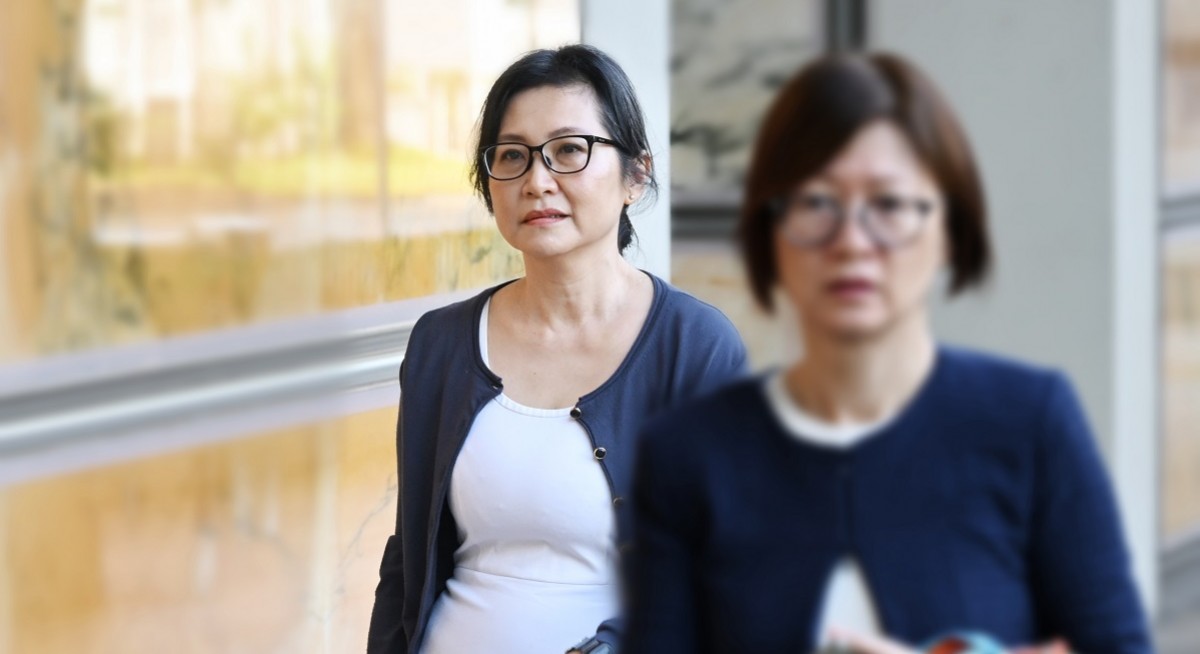Quah and her lover Soh Chee Wen are appealing their convictions for orchestrating Singapore’s largest securities fraud through BAL. They were found guilty of covertly controlling nominee accounts to fake market activity and deceiving financial institutions into providing hundreds of millions in financing to fuel the scheme from 2012 to 2013.
“Her role, if any, was minimal,” Sivananthan said, making his case before Chief Justice Sundaresh Menon, Justice Andrew Phang and Justice Tay Yong Kwang.
“It is quite clear that the role of the second accused, my client, was really – for want of a better word – a Girl Friday position. She was carrying out instructions, and the court recognised it and the prosecution recognised it, and those instructions clearly did not emanate from her.”
Soh more culpable
See also: Apex court reserves judgement on sentences in Singapore’s largest securities fraud
It was Soh who has greater culpability as evidence shown during the trial suggests Quah had little involvement in the conspiracy, according to Sivananthan.
“From the evidence, it’s not clear if the second accused knew what the scheme was. She had parts to play here and there but there’s no real evidence about her understanding the scheme.
“In terms on conspiracy, the question I’m raising is ‘Did the second accused understand the full extent of what’s going on?’ I’m not disputing that there was evidence that there were some accounts that she was giving instructions (for), but everyone basically said that ultimately it was instructions coming from the first accused.”
See also: Penny stock masterminds lose bid to overturn convictions
CJ Menon questioned Sivananthan’s line of argument.
“The person who’s alleged to be the conspirator is not going to come forward to say ‘Yes, I conspired to do this’. It’s really a matter of inferring from the surrounding facts what you think happened and what you think took place and what agreement there was.
“So, if you look at the objective facts, and based on the objective facts that involved both the appellants, the inference the prosecution submitted that should be drawn is that there was an agreement between the two appellants to enter into this scheme.”
No evidence from account holders
Separately, Sivananthan took issue with the prosecution’s decision not to call individuals who had been asked to open stockbroking accounts to trade BAL shares, suggesting it left an important gap in the evidence presented at trial.
“The failure to call the account holders … raises an adverse inference,” he said.
“You have to say that these were nominees of the appellant and they opened the accounts at her request or that she was allowed to use the accounts. That evidence is not around.
To stay ahead of Singapore and the region’s corporate and economic trends, click here for Latest Section
“When the main person in charge of the account is not called as a witness. We have a third party saying that she used these accounts but the account holder is ultimately the only person who can confirm the fact.”
Prosecution rebuffs
When it was the prosecution’s turn to present its case, Deputy public prosecutor David Koh presented emails and transcripts of recorded phone conversations involving the two appellants to show that they were actively involved in market-making the three stocks.
“The two appellants were constantly looking for additional trading lines that they could use to bring into the scheme, or trading limits which they could use to buy and control shares,” Koh said.
“All the more as the scheme went on and the price of the shares increased, and trading activities increased, more trading accounts became necessary.”
Soh was convicted of 180 charges and sentenced in 2022 to 36 years in jail. Quah was found guilty of 169 charges and given 20 years behind bars. They were granted a stay on execution of their sentences pending their appeal.
The hearing continues on Thursday (May 8).




